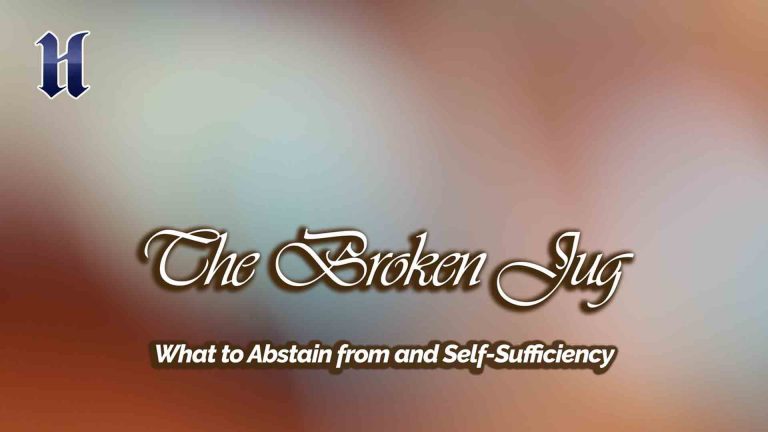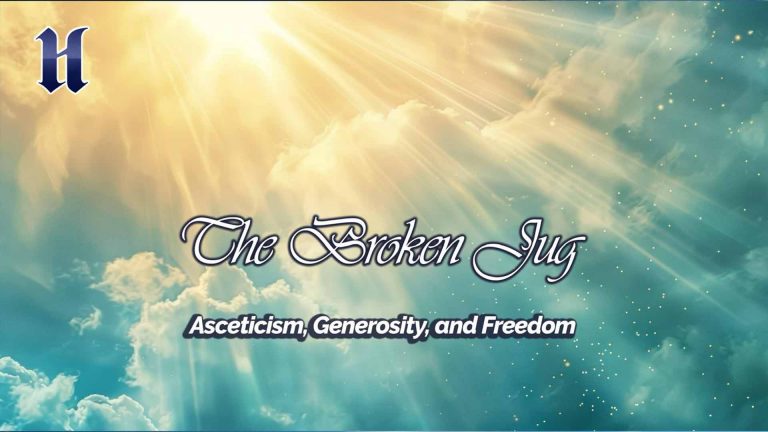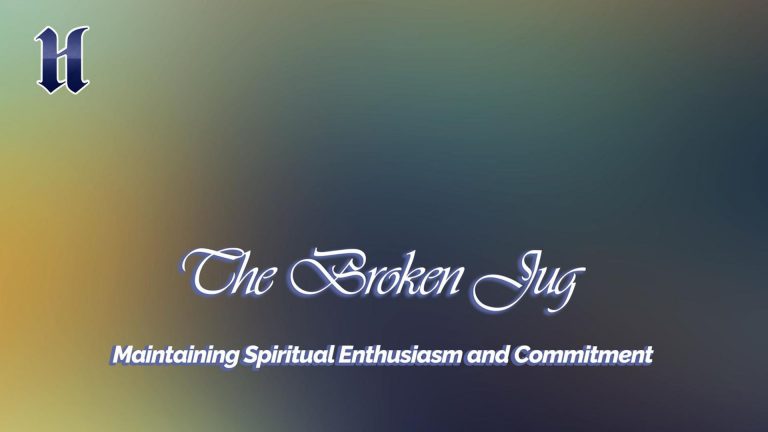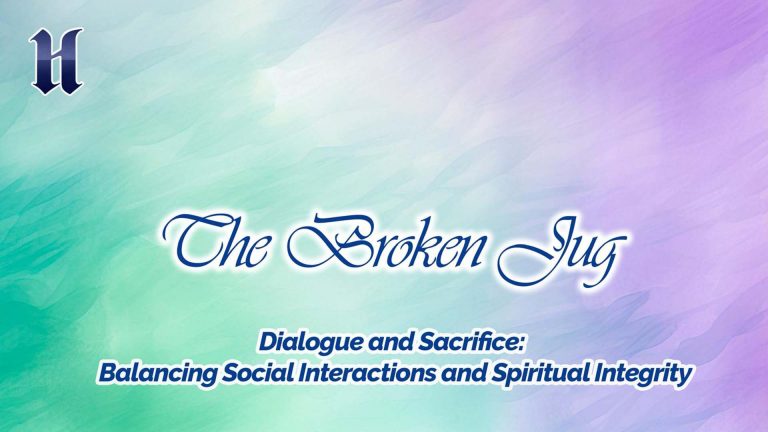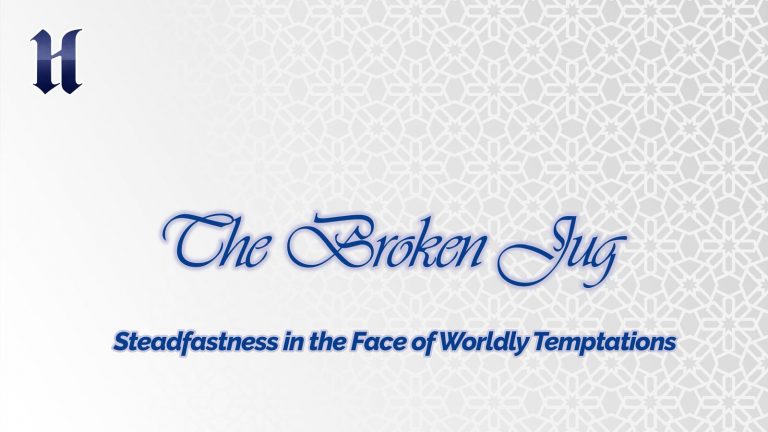Throughout human history, prophets, truthful individuals, and righteous beings have consistently encountered counterparts in the form of pharaohs, tyrants, oppressors, and the wicked in every era. As Surah Hud (11:49) emphasizes, ‘Surely the ultimate outcome belongs only to the righteous/those who are aware of God.’ Those who direct their faces towards Allah lead lives free from shame, embarrassment, or regrets, ultimately progressing towards a radiant destiny that brings joy to their hearts.
This future outcome is reflected in the Hereafter, where the bitterness of endured hardships fades away, leaving a taste of sweetness. The challenges faced in this world transform into captivating narratives there. Righteous individuals recline on thrones prepared for them, exchanging smiles and narrating the events of their earthly existence. They share tales of how tyrants, like Yezids, approached them with malice and anger, how oppressors, like Hajjajs, relentlessly attacked during pilgrimages, and how wicked ones, like Shimirs, set up gallows for themselves. These experiences are recounted as sweet tales and memories; the hardships inflicted by oppressors diminish in their eyes to the extent that they remark, ‘How greatly we magnified these troubles in our eyes while we were in the world!’
Oppressors, who live only for the present without perspectives for tomorrow or the day after, leading lives focused on worldly gains rather than the eternal realm, will be dragged into a dark destiny filled with a thousand yearnings and remorseful ‘if only’s. While the righteous and truthful group departs to attain Allah’s eternal blessings, those unfortunate ones are left scattered on the roads. They lament, beseech Allah in supplication, writhe in regret, yet they cannot find the opportunity to make amends for the missed chances.
Given the destiny that awaits us, it is crucial not to panic in the face of encountered troubles but to remain steadfast and resist with patience. The righteousness of the chosen path is the critical factor. If you have unfurled the exalted Name of the Divine like a flag everywhere, envisioning the spirit of Muhammad flourishing worldwide, then in the face of afflictions and trials, standing firm is imperative. Refusing to yield even to opposing winds that uproot mighty oaks, you should remain unyielding in your place. Declare, “Once my visionary goal is realized, whether it comes with hardship from His majesty or with kindness from His beauty, both are pure to the soul. Both Your grace and Your benevolent severity are pleasing.” Then, continue to walk forward.
Challenge the adversaries that come upon you, as the Prophets and their faithful followers did when appropriate. The words uttered by Prophet Noah (peace be upon him), who endured various agonies and tribulations at the hands of his disbelieving and rebellious people, express such a challenge: “O my people! If my presence among you and my reminding you by God’s Revelations are offensive to you – well, in God, I have put my trust. So, coming together, decide upon your course of action, and call to your aid your so-called associates of God. Then, let not your affair be a worry to you, and carry out against me whatever you have decided, without giving me any respite!” (Surah Yunus, 10:71)
In a more explanatory manner, it can be rendered as: “Know this; I have placed my trust in Allah alone. If you wish, gather all your cunning schemes and traps, come at me with full force. Call upon your associates, bring them with you. Make all your preparations, mobilize all your resources so that there is no lingering regret among you, thinking, ‘If only we had done this or that.’ Then, without any delay, without procrastination, implement your decision and do what you intend to do.”
Certainly, Noah (peace be upon him), as one of the ulul-azm Prophets[1], speaks here with the dignified demeanor befitting a steadfast messenger. First, he emphasizes his unwavering trust and reliance on Allah. Then, in the face of his hostile people, he stands firm and challenges them. With this attitude, he sets an example for the believers who come after him, demonstrating how those who believe in Allah should maintain their stance in the face of adversaries. Prophet Noah shows how believers should confront their opponents with resilience and confidence, becoming a guiding model for those who trust in Allah.
Indeed, if you listen to the words of any Prophet, you will hear similar sentiments. Whichever Prophet’s life you examine, you will find the same steadfastness. The second of the arch-Prophets, Abraham (peace be upon him), stood firm, challenging all the arrogant rulers during a period when conspiracies and traps were plotted against him. Engaging in a debate with his people, he boldly declared: “How can you argue with me about God when He has guided me? I do not fear anything you associate with Him; unless my Lord wills, nothing can happen. My Lord encompasses everything in His knowledge. How can you not take heed?/Will you not, then, come to your senses?” (Surah al-An’am, 6:80)
Likewise, in the face of calamities and tribulations, he poured out his heart to Allah, saying: “Our Lord, upon You we have relied, and to You we have returned, and to You is the destination/the final return.” (Surah al-Mumtahina, 60:4)
Certainly, the sincere supplications of some individuals from the community of Prophet Moses (peace be upon him) also underscore the same point: “In God, we have put our trust. O Lord! Do not make us a target of persecution for the oppressors” (Surah Yunus, 10:85). These prayers can be seen as another manifestation of standing firm, as a person relying on Allah cannot submit to any other power.
When Prophet Moses (peace be upon him) found himself trapped between the sea and Pharaoh’s armies, he reassured his followers with these words: “Indeed, my Lord is with me; He will guide me” (Surah ash-Shu’ara, 26:62). Similarly, when the polytheists reached the gates of the cave of Thawr to kill the Prophet Muhammad (peace and blessings be upon him), he comforted Abu Bakr, saying: “Do not grieve; indeed, Allah is with us” (Surah at-Tawbah, 9:40). These instances reflect different facets of the same resolute stance.
After Prophet Moses uttered those words, the sea miraculously parted, allowing him and his people to cross safely, while Pharaoh and his followers were drowned. Moreover, Allah thwarted the traps and schemes of the polytheists in Mecca, defeating them with a humble spider and a seemingly weak pigeon. This, in a way, led to their defeat, paving the way for the Prophet (peace and blessings be upon him) to migrate to Yathrib (later known as Medina), which eventually became a center of civilization. Despite various trials, believers ultimately reached their essence and attained closeness to Allah.
If we transition from those times to the present, scholar Bediüzzaman, who illuminates our era, has not been immune to oppression and has faced the hardships imposed by the oppressors of his time. However, he never yielded to the oppressors. At times, he boldly confronted them. For instance, he exclaimed, “Even if you turn the world into a fire upon our heads, those heads dedicated to the truth of the Qur’an will not surrender to deniers, and, by God’s will, the dedicated will not deviate from their sacred duty!” (Gleams)
In another instance, raising his voice a bit more, he resolutely declared the following: “After you kill me, you will not live! With an overpowering hand [God’s might], you will be cast away from your paradise and the beloved world into eternal darkness! Following me, your tyrant leaders will be swiftly dispatched, and I will seize them in the Divine presence. With Divine justice, I will take my revenge by casting them into the lowest depths! O wretched ones who sell your religion and the Hereafter for the world! If you want to live, do not touch me! If you dare, know that my revenge will be taken from you in an overwhelming manner. Tremble! I hope for Divine mercy that my death will serve the religion more than my life.” (Letters)
No oppression lasts eternally. Regardless of how long afflictions and calamities persist, they will eventually come to an end. However, it should not be forgotten that one reaps what one sows. The oppressors darken their own intermediary and afterlife with their own hands. Yet, the troubles inflicted might serve as expiation for the sins and faults of those who endure them and as a means of salvation. Therefore, it is crucial to face everything that happens with patience and contentment. Sufi poet Enderûnî Vâsıf beautifully expresses:
Indeed, what is destined will eventually manifest.
Hence, entrust your affairs to the Divine; neither endure pain nor harbor sorrow.
Therefore, in the face of the calamities that befall us, we should stand unwavering, avoiding succumbing to panic or disrupting the harmony of our journey. Depending on the condition of the paths we tread, we may adjust our gears and speed. When the roads become smoother, we elevate our gears accordingly. However, when confronted with ramps and bends, considering the road’s condition, we decelerate and continue our journey with caution. Yet, we persist without coming to a halt. Even when circumstances prevent us from walking, we continue to move in our place. If we firmly believe that it is Allah (the Majestic and Glorious) who guides us on this path, opens the way before us, and inspires us with what we need to do, we do not succumb to despair due to the difficulties we encounter. Trusting that the path we tread is Allah’s path, and our journey is truly toward Him, we also trust that He never leaves those who walk in His way alone and forsaken.
If the path and route belong to Him, those who traverse it do not experience loss. A person who trusts in Allah and attains Divine companionship need not worry. Even in apparent loss, they gain tremendous things. Similar to the companion who fell to the ground with a spear blow, declaring, “I swear by the Lord of the Kaaba, I have now attained triumph and salvation!” On the other hand, those attached to palaces, positions, and the transient beauties of the world, sustaining their existence through these, are the ones who fear loss and experience the sorrow of leaving things behind. They are aware that in an earthquake, when the foundations they rely on are shaken or destroyed, they themselves will be crushed under the debris. For a person who solely attaches their heart to Allah, there is nothing to worry about. Allah is Everlasting, and He does not subject those attached to Him to loneliness.۞
Note: This text is translated from the Sohbet (conversation session) given on January 17, 2016.
[1] There were five Prophets who were bestowed with Divine Books and independent teachings, constituting Divine religious laws. They are known as Nuh (Noah), Ibrahim (Abraham), Musa (Moses), ‘Isa (Jesus), and Muhammad, peace be upon them all. These esteemed Prophets are referred to as the Ulul’azm Anbiya’, translated into English as arch-Prophets, major Prophets, or resolute Prophets.


